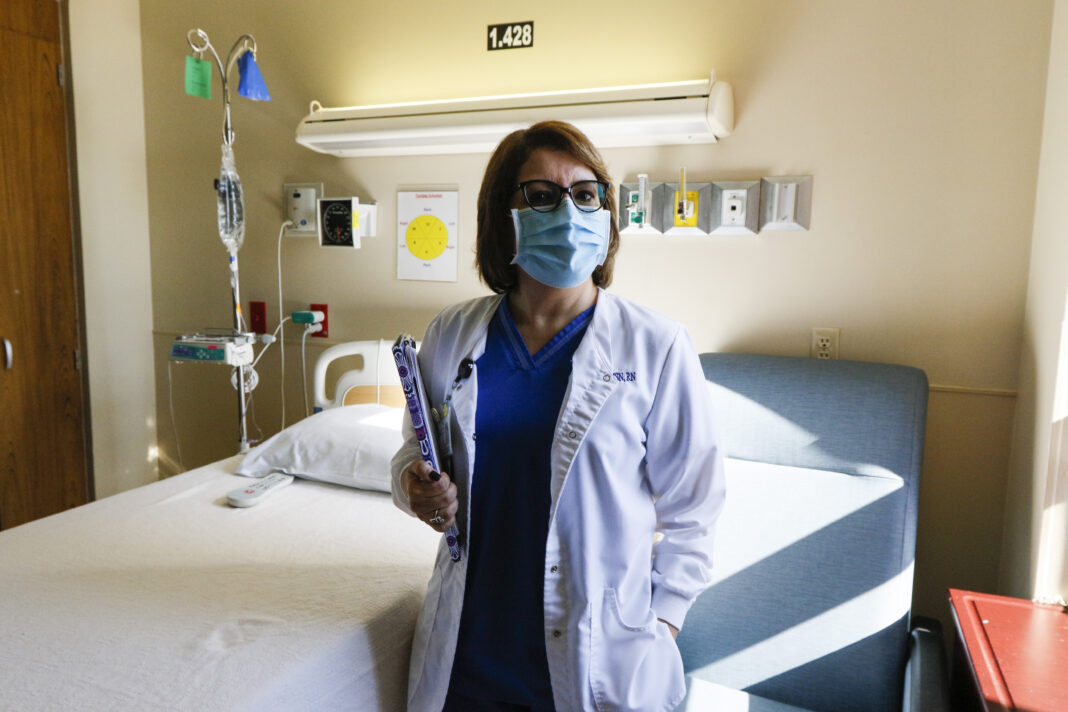HARLINGEN – Shock, disbelief, action.
Three decades as a nurse hadn’t prepared Patty Vega to hear the word everyone dreads: “Cancer.”
She’d heard it many times as a nurse and, more recently, as director of oncology services for Valley Baptist Medical Center.
But that word had never been directed toward her until 2 ½ years ago.
“I remember sitting there in the office with my oncologist,” she said. “My husband was there and the oncologist broke the news and I was like, ‘Ok, what are we going to do about this?’”
The initial shock lasted a couple of weeks but knowledge and education from the nurse practitioners at Valley Baptist quickly gave her some power and confidence over the situation.
She remembers her immediate reaction being, ‘I have cancer, and I’m going to die.’
Well, she did have cancer, but she didn’t die. She’s alive and well at her job at Valley Baptist, and she wants to tell her story.
For starters, her survival was based a lot on vigilance, owing to her vocation as a nurse, her position in oncology services, and her family history of breast cancer. She didn’t find any lumps in her breast, felt no pain or other symptoms.
But something just didn’t feel quite right.
“I felt, I guess we could say, different on one side of my chest,” she said. “Within a couple of days, I just felt like there was probably something there but I wasn’t sure. So I just immediately sought help.”
She promptly met with her oncologist who soon determined she indeed had breast cancer.
She underwent four months of chemotherapy and a month of radiation.
Her chemo involved the insertion of a port under her skin through which she received her treatments. Needless to say, it was not a pleasant journey. It was a profile in courage as it is for anyone who faces a threat and challenges its power. She challenged her cancer well, even more so considering it took place during the pandemic. In spite of everything, she never stopped working. She took her treatments as an outpatient and stayed at her post.
Yet she felt the pain endured by anyone in this circumstance and recalls it well.
“There is a degree of depression that can naturally happen because of the course of the treatment,” Vega said. “Sometimes you don’t see like the end is near as far as when we’re going to finish this because there are a multitude of chronic and long-term symptoms that you go through and experience for the duration of the chemotherapy. But it gradually turns around and now I’m functional back to 100 percent.”
These days she uses the experience to empower her work with cancer patients and their families. She can give them a level of empathy she didn’t have before her own cancer scare.
“What has definitely changed for me is the way I view patients with their diagnosis,” she said. “I’ve already walked in their shoes, so there’s that element that I try every day, every day, to reassure patients there are treatment options.”
She urges patients not to feel daunted by their dilemma. And she urges the public and the hospital staff to remain vigilant and informed.
“Education is important for screening,” she said. “They need to listen to the signs, any symptoms, any clue that you feel in your body that’s different, that wasn’t there before.”





